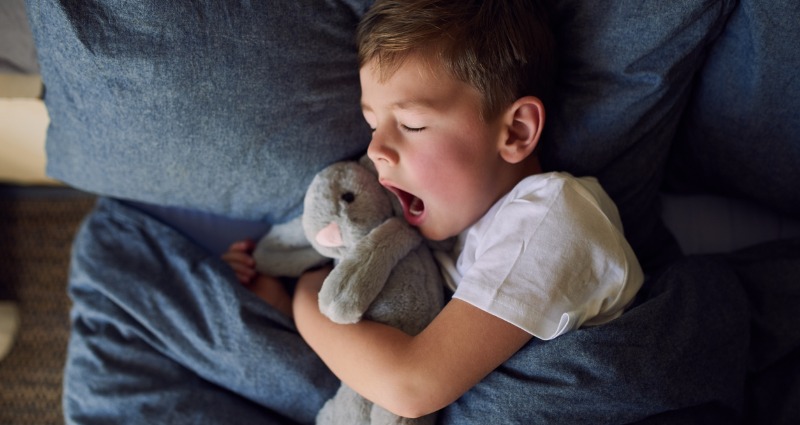
Teeth grinding, otherwise known as bruxism, is a common problem in children. It is estimated that around two-to-three in every 10 children will grind their teeth and while some children grow out of it, others continue into adulthood.
Teeth grinding can become a serious problem, even when children still have their baby teeth. It’s important that parents take their child to the dentist if they suspect their child is grinding their teeth.
Symptoms of Teeth Grinding
It can be hard for parents to realise their child is grinding their teeth because the symptoms can relate to so many other ailments.
The most common symptoms include:
Children may only grind their teeth at night, but it’s also common for them to clench their teeth during the day. Your child may clench when they feel stressed or just as a habit. Clenching places strain on the jaw and can lead to a painful temporomandibular joint (TMJ) over time.
Teeth Grinding Causes
There are several causes of teeth grinding, but one of the main causes is misaligned teeth.
For some children, the grinding of teeth may only occur for a short time while teeth are shifting and realigning, which causes some discomfort at night. They may be suffering from a short-term illness or allergy that causes the problem, but disappears once the illness clears.
-
When teeth don’t sit together due to a poor bite, they’re more likely to be in close contact with another tooth and easier to grind.
-
Stress and anxiety are also common causes of grinding.
-
Children who are hyperactive or have cerebral palsy are more likely to grind their teeth.
-
Some medications are thought to cause a child to grind their teeth.
-
Being dehydrated can cause bruxism in children and adults.
If you suspect your child may be grinding their teeth in their sleep, go into their room during different stages of sleep and listen for any noises.
At your child’s next dentist appointment, mention any symptoms and ask the dentist if they can check for signs of bruxism.
How to Treat Teeth Grinding
There are a number of treatments available for teeth grinding. The method of treatment taken will depend on the factors that could be causing the problem.
Relieve Stress and Anxiety
If you know your child is anxious or stressed, try some stress relieving techniques, particularly before bed. Some soothing sounds, a warm bath and relaxed bedtime routine are worth a try. Keep talking to your child to find out what is causing their stress or anxiety. Help them work through any issues they’re having to reduce the burden they’re feeling.
Diet and Dental Hygiene
Make sure your child isn’t going to bed dehydrated. Ensure they’re drinking plenty of water throughout the day and eating a healthy diet. Make sure your child is brushing their teeth morning and night.
Preventing Damage with a Night Guard
If the cause is unknown or proving difficult to fix, one of the best options is the protection of a night guard. A clear aligner worn just in bed will protect teeth from being worn down or damaged, but it also protects the jaw and head from pain after a bad night of teeth grinding. Some people continue to grind their teeth and can even destroy the guard with time, but at least the teeth are largely protected.
A night guard may also be used as an interim measure before misaligned teeth can be treated through orthodontics. Once the bite is improved through braces, Invisalign or surgery, a night guard may be no longer needed. Speak to an orthodontist for a plan to fix your child’s bite and hopefully also their bruxism.
Orthodontics for Bruxism
When you have tried other forms of prevention for teeth grinding, you may consider asking your dentist for a referral to an orthodontist. You may already be aware of other dental issues that can be treated with orthodontics, such as a poor bite or crooked teeth.
Orthodontics may improve a number of dental issues they’re experiencing now and potentially save them from others as an adult. Fixing the bite will improve the appearance of their smile and, in some cases, the shape of the face. Braces may also work to save your child from painful jaw problems later in life caused by years of teeth grinding.
If you would like to talk through your options when it comes to teeth grinding treatment, don't hesitate to call your nearest clinic and speak with one of our specialists or book an appointment online.